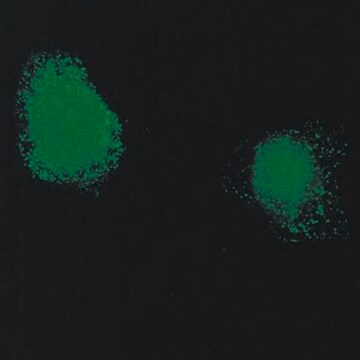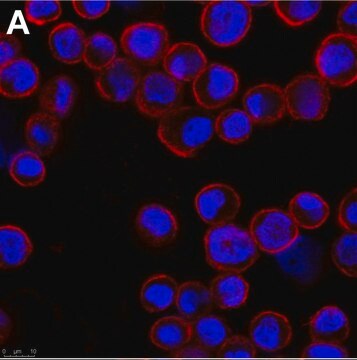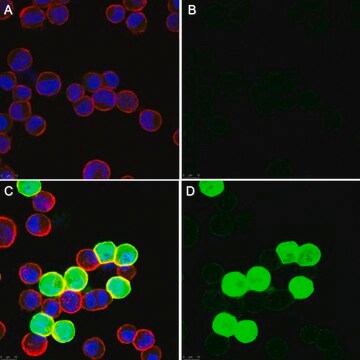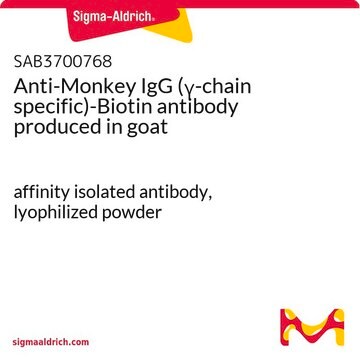MAB8044
Anti-Adenovirus 1,2,5,6 Antibody, clone 7/48-7a
ascites fluid, clone 7/48-7a, Chemicon®
About This Item
Recommended Products
biological source
mouse
Quality Level
antibody form
ascites fluid
clone
7/48-7a, monoclonal
species reactivity
human
manufacturer/tradename
Chemicon®
technique(s)
immunofluorescence: suitable
isotype
IgG1
shipped in
wet ice
General description
Specificity
Immunogen
Application
Optimal working dilutions must be determined by end user.
Infectious Diseases
Infectious Diseases - Viral
Physical form
Storage and Stability
Legal Information
Disclaimer
Storage Class Code
10 - Combustible liquids
WGK
nwg
Flash Point(F)
Not applicable
Flash Point(C)
Not applicable
Regulatory Listings
Regulatory Listings are mainly provided for chemical products. Only limited information can be provided here for non-chemical products. No entry means none of the components are listed. It is the user’s obligation to ensure the safe and legal use of the product.
JAN Code
MAB8044:
Certificates of Analysis (COA)
Search for Certificates of Analysis (COA) by entering the products Lot/Batch Number. Lot and Batch Numbers can be found on a product’s label following the words ‘Lot’ or ‘Batch’.
Already Own This Product?
Find documentation for the products that you have recently purchased in the Document Library.
Our team of scientists has experience in all areas of research including Life Science, Material Science, Chemical Synthesis, Chromatography, Analytical and many others.
Contact Technical Service






